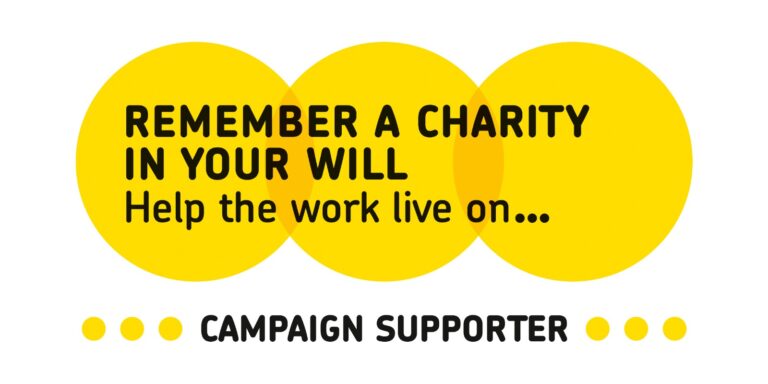How to sign your Will
Your simple, clear and easy-to-use guide on how to make sure your Will is legal.

A common reason for why Wills are successfully challenged in the UK is the failure to follow the strict legal rules on how a Will must be validly executed.
One simple mistake can be costly – both financially for your estate and emotionally for your relatives. This short guide simplifies the process and, if followed, will ensure your Will is correctly signed and validly executed.
You have thought about what you want to include in your Will: you have carefully considered your estate, how it is to be distributed and drafted your Will accordingly.
You have a beautifully-written Will which does exactly what you want.
But the work is not over yet.
In order for your carefully-planned and -drafted Will to be effective and actually carry weight, it needs to be brought to life.
The way this is done is through valid “execution”.
Don’t panic – the word is not nearly as alarming as it sounds.
“Execution” is the term used to describe the formal process of putting into effect a legal instrument or order; in this case, your Will.
Thus, if your Will is not validly “executed”, it will not be put into effect, and may not be admitted to Probate as a valid Will.
The instructions contained therein will not be followed and the Will might as well have not even been written in the first place.

But do not fear.
By following this clear and simple guide, you will be able to execute your Will with confidence that you are doing so in accordance with the UK legal requirements.
• Why valid execution is important
• Signed
• Presence
• Capacity
Why valid execution is important
There are several ways in which a Will can be challenged.
A collection of these are through ‘probate claims’ which concern the challenging of the validity of an alleged Will on the basis that:
• The testator did not properly execute the Will;
• The testator lacked testamentary capacity to make a Will;
• The testator did not know or approve of the contents of the Will;
• The testator was acting under undue influence when the Will was made; and
• The Will was made by fraud.
Amongst the most commonly-challenged of these is the testator’s failure to properly execute the Will.
It is unfortunate that people would fall at the final hurdle when making their own Will simply by not executing it properly and this is commonplace with people executing their own Will themselves without legal advice.
So, we have stepped in to provide a clear, simple and user-friendly guide (with accompanying visuals) to help clarify this area for you.
The legal requirements
To be valid, the Will must be:
• in writing
• signed and witnessed;
• witnessed by two or more people present at the same time; and
• intended by the testator to give effect to the Will by signing it.
So, in practice it merely requires the following steps:
• The testator signs the Will in the presence of two witnesses;
• Each witness then signs the Will in each other’s and the testator’s presence.
Let’s look at some of the important aspects in a little detail:
In writing
The Will can be handwritten in ink or in pencil, or typed in an electronic format.
If handwritten, it is advised that ink is used.
Writing a Will in both ink and pencil suggests that the testator was still undecided about whether the part in pencil should be a permanent part of the document, or it was just deliberative; as such, it opens the Will to challenge and is therefore advised against.
Signed
The testator must sign the Will himself through his signature or a mark.
Any mark by the testator on the document validates the Will provided they intended it to be their signature, and that this signature is meant to execute the will.
If the testator is illiterate and uses their thumb print as their signature to execute the Will, the Will is valid.
However, if the testator has a disability preventing him from signing (such as being blind or partially-sighted) then another person must sign the Will in the testator’s presence and at the testator’s discretion.
Presence
This merely requires that the three people involved need to be in the same room (save for the exceptions regarding video-conferencing, as noted below) and attentive throughout the process.
They must have a clear view of the person and the act of signing.
Witnesses
It is essential that both witnesses see the testator sign/execute the Will.
If one of the two witnesses does not see the actual signing of the will, the will is considered invalid.
The witnesses do not need to be aware of the contents of the Will, but they must know that the document is a Will.
After attesting to and witnessing the signing of the Will, the witnesses must attest the Will by signing and acknowledging their signature in the presence of the testator.
Anyone can be a witness to the signing of a will, as long as they are over the age of 18 and are not blind.
A witness does not have to be a professional person, and they are not required to have any special qualifications.
The chosen witnesses must be as independent as possible, such as your neighbours or work colleagues.
A beneficiary (or their spouse or civil partner) must never sign the will as a witness.
Otherwise, whilst the Will will remain valid and can still be admitted to probate as a valid Will, the beneficiary would lose their entitlement under the Will.
The reason for this is to ensure that the execution/signing of the Will is free from any bias or vested interest, by ensuring that all parties involved are disinterested.
Capacity
An important factor is that the testator must be of sound mind when signing the Will.
This means he must have a required degree of understanding to enter into the Will.
This aspect opens up challenges against the validity of the Will on the basis of the testator’s lack of capacity, rather than valid execution being effected, and so further, more detailed information can be found here.
Video-conferencing
There has been an increased demand for Will-making brought about by the Covid 19 pandemic and the legal requirements for valid execution, as noted above, have been difficult to carry out due to social distancing requirements that people shield and self-isolate.
As a result, the legal framework for valid execution has been amended to the extent that ‘presence’ encompasses virtual presence, via video-link, as an alternative to physical presence.
This legislation applies to Will made since January 31 2020 and up to 31 January 2022, though this is subject to change in line with updates in coronavirus legislative measures.
After this new law ceases to be in force, people will only be able to make new legal Wills using the conventional methods set out above (i.e. before the change with effect from 31 January 2020).
What is the effect of this change?
The normal, existing relevant legal requirements as noted above, have not been changed by the new law.
It simply provides that ‘presence’ can include virtual presence through video-link for both Wills and codicils.
Distanced witnessing – ‘clear line of sight’
The existing legal framework requires that a witness must have a ‘clear line of sight’ of the testator signing the Will.
This can be effected by witnessing:
• through a window or open door of a house or a vehicle;
• from a corridor or adjacent room into a room with the door open; or
• outdoors from a short distance, for example in a garden.
Video-witnessing
The type of video-conferencing software or device used is not important.
What matters is that the testator and his two witnesses each have a clear line of sight of the writing of the signature.
The witnesses must see the Will being signed in real-time – not through pre-recorded videos.
If possible, the whole video-signing and witnessing process should be recorded and the recording retained for evidential purposes.
Signing and witnessing a Will by video-link
The Government has outlined a five-stage video-link process which can be found here.
Electronic signatures
Electronic signatures are still not permitted as part of the temporary legislation due to the potential risks of undue influence or fraud against the testator.
Counterpart documents
Regarding video-witnessing, counterpart Wills are still not permitted.
‘Counterpart Wills’ is when two copies of the Will are prepared, and whilst the testator signs one document, the witnesses sign another copy of the same document.
The two counterparts between them constitute one valid Will.
How we can help you
You will hopefully see that the execution or signing of the Will is just as important as writing the Will itself because it is at this moment that the Will becomes alive.
As such, it is imperative that the legal requirements noted above are implemented and followed conscientiously so as to ensure the Will is valid and legal, and the instructions within will be effective.
Whilst the law has been amended so that the legal process can be applied in the context of video-witnessing Wills, it is stressed that this temporary change should be used as a last resort.
Whilst it is here to help us through the coronavirus pandemic, the consensus is that you should stick to the normal, conventional legal process for executing your Will as much as possible, in the interests of both you and your intended recipients.
When we draft your Wills, we include an attestation clause which provides written proof that the legal process has been followed.
We also date our Wills in two places for matters of certainty.
When we provide you with your Will ready for execution, we accompany it with a Signing Guide and are also on hand for advice and guidance.
Afterwards, we can review the signed Will to ensure it has been validly executed.
When we provide our Execution Service, we write an attendance not to reflect the effective implementation of the legal requirements and to provide evidence of valid execution regarding the process and your testamentary capacity.
You can learn more about our Execution service here.
You can find out more about our friendly team of witnesses here.
Call us on 01865 507174 or email us at info@adewills.co.uk to get started.
You can download our Free Will Information Guide for more detailed information.




